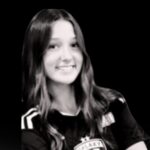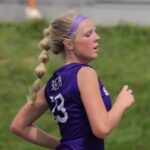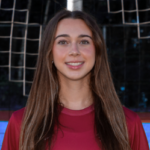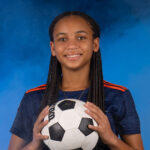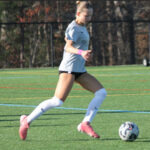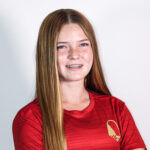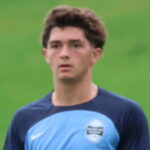Q&A: University of Virginia assistant women’s soccer coach Ron Raab
By Jimmy LaRoue
University of Virginia assistant women’s soccer coach Ron Raab spent last weekend taking a look at some of the top girls’ talent taking part in the Elite Clubs National League San Diego showcase.
We caught up with Raab while he was taking a look at the Under-16 matchup between PDA (N.J.) and West Coast FC (Calif.) at the San Diego Polo Club.
The Soccer Wire: What are you keeping your eye on as you’re out here at the ECNL San Diego showcase?
Ron Raab: We’re looking for players that, obviously, can impact our program, can help us out, and can compete at the level that we’re at in the ACC, and certainly on a national basis. This is great, because for us, being out here on the West Coast, we get a chance to see some kids we don’t normally always get to see being from the East Coast, so it’s a good combination of great competition and players we don’t normally get to see.
TSW: What specifically are you looking at during the showcase – new players or ones you’ve been tracking a while?
RR: Both. I mean, obviously, some of these kids we’ve seen before and want to see over time, and it helps us in terms of evaluation to see kids over a period of time, but at the same time, we’re always looking for new players that can crop up, and as we’re recruiting younger and younger, things change, so the opportunity to see them over the course of time is great. New players can come up on the radar and hopefully, we can find some players that we’ve seen over the course of time that are continuing to improve and make informed decisions about those kids.
TSW: Has the ECNL raised the level of play from the players you’re recruiting?
RR: I would say that the level of competition within the ECNL, I think, is good, because you tend to get kids, or excuse me, teams – the games themselves are far more competitive, so you see fewer and fewer lopsided games or things of that nature. In terms of the evaluation process, I think it makes it easier to see kids that are being challenged as opposed to games that are a little bit lopsided, they don’t get a true representation, I don’t think necessarily, of their abilities. The idea behind the ECNL, I think, has done well in terms of getting teams in competitive environments and players and that sort of situation that helps in our evaluation.
TSW: What are you watching for when you’re scouting players, particularly when you won’t see them on the college level for at least a couple of years?
RR: I guess the biggest thing is, are they continuing to improve? Are they getting better? Or are they staying the same? Or not, as the case may be? And that’s the part [where] all players grow and mature at different rates. At the U-15, U-16 level, somebody might be the best player on the field, and by U-17, that may not be the case, and that can be due to a physical characteristics, or just that their development in terms of the technical or tactical aspects of the game, so to be able to see that and kind of make a better determination of the direction that they’re going in in the long run, hopefully helps us to make better, informed decisions about what they’re going to be like when they actually get to the college level.
TSW: What areas are you looking to strengthen at UVa?
RR: In terms of positioning, outside of goalkeeping, we’re looking for players, I guess, that are going to impact us. We’re not necessarily recruiting a left back, specifically, ‘cause while they may play that here at this level, that may not be the best role in our program based on the players that we have in it, or just with the characteristics that we’re looking for in terms of adding to our roster. It’s not to say that nobody plays the same position at the next level, but the important thing for us is players that are continuing to grow, that are motivated, that are competitive and are going to be able to impact us in terms of our program. Those are the players that we’re looking for.
TSW: Looking for someone to compete specifically at the ACC level?
RR: Absolutely. And that’s what’s so important in terms of players – their ability to play different positions, to be able to have that impact on any team, for that matter, their ability to read the game, play different roles, play different positions, I think, is a great asset for any player. I think, for players that we’re looking for in the ACC, one of the big things we’re looking for is competitiveness. Can they compete at the ACC level? Not everybody can do that, and not everybody wants to do that.
TSW: What is the landscape for UVa. going forward?
RR: We’ve been amongst the more competitive teams in the conference and obviously that’s a continued goal for us. It’s been a couple of years since we’ve won the conference, but having done that, this year we were a game short of making the Final Four, so we obviously want to sustain that level, and there’s still, yet, a little bit further for us to be able to go, so that’s our goal, and that’s what we’re looking for in terms of players that are going to help us, hopefully, bridge that distance.
TSW: Are you recruiting a specific class?
RR: We’re recruiting the next couple of years. We’re recruiting [2013 freshmen], certainly the [2014s], but I think beyond that, we’re kind of stretching our abilities in terms of being able to truly evaluate a player.
TSW: How difficult is it to project how a player is going to do at the college level?
RR: I think it’s very difficult even two years out; it’s a challenge. But certainly once you get beyond that, I think you’re really stretching the balance of any sort of concrete ability to make an informed decision.

